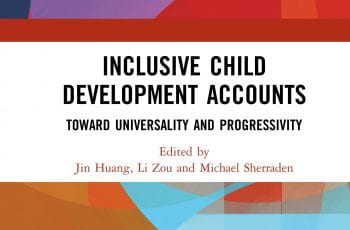Nearly 30 years after the publication of Michael Sherraden’s seminal Assets and the Poor, Child Development Account (CDA) policies and programs are emerging across the globe. Now, a new book edited by Jin Huang, Li Zou and Sherraden showcases the global context of those advancements.
New Book Charts Global Progress of Child Development Accounts

